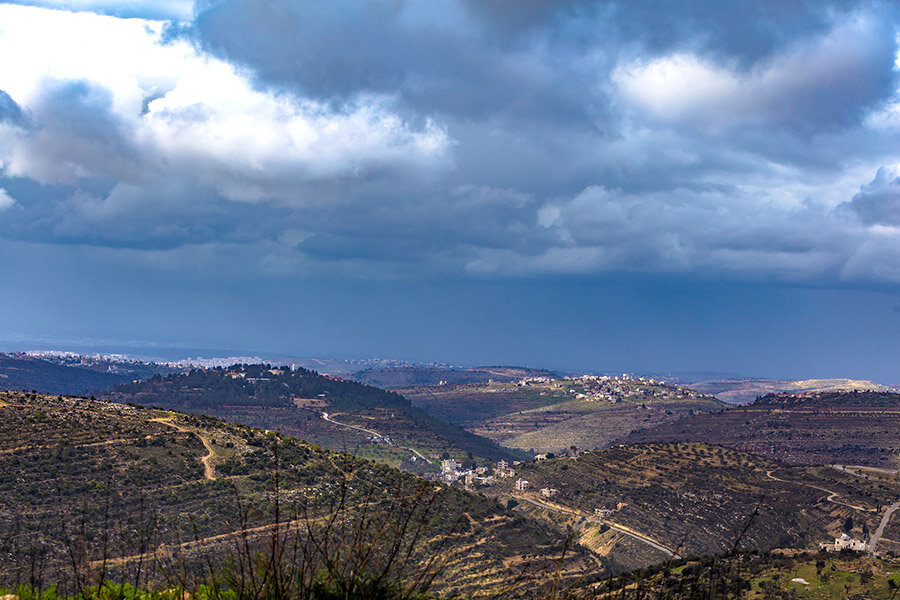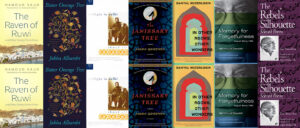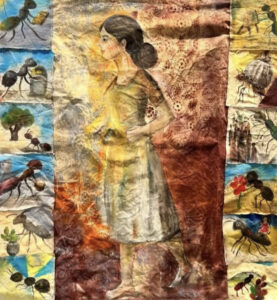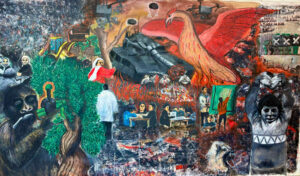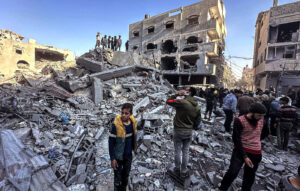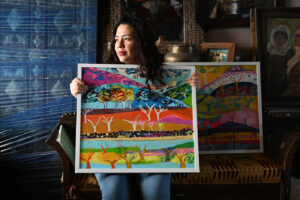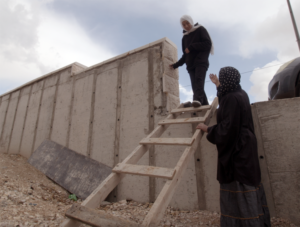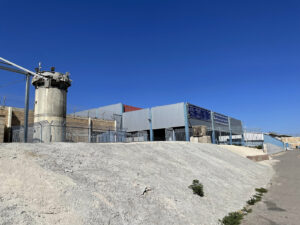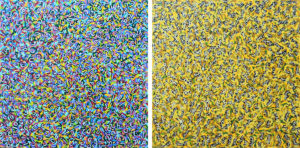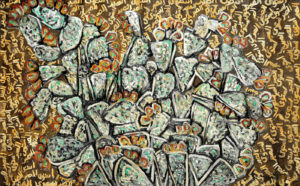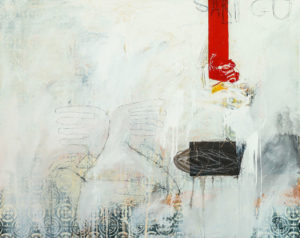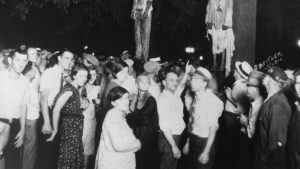Jenine Abboushi reviews the recent anthology of essays on socialism in the context of Palestinian resistance.
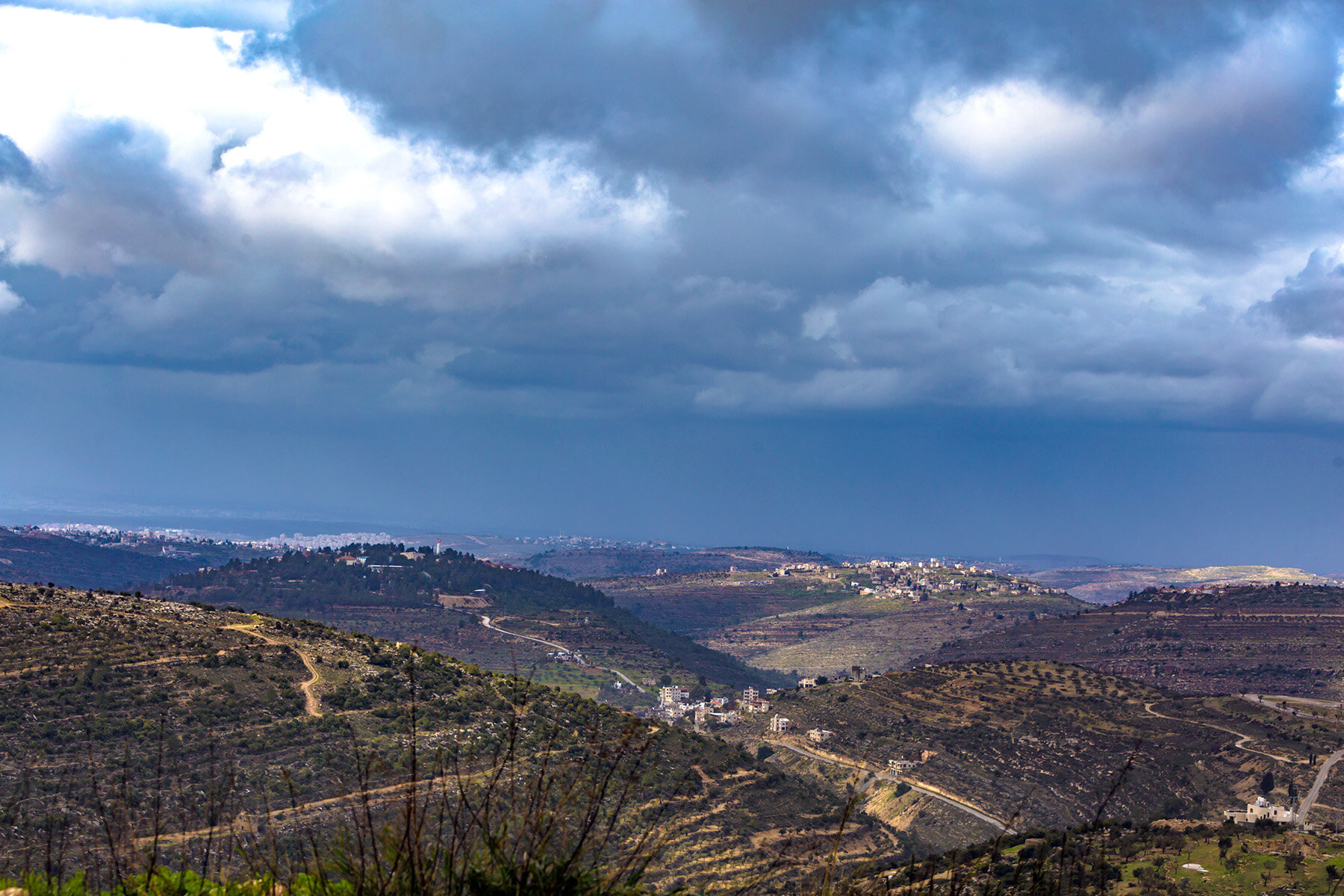
Palestine: A Socialist Introduction
Edited by Sumaya Awad and brian bean
Haymarket Books (Dec. 2020)
ISBN 9781642592764
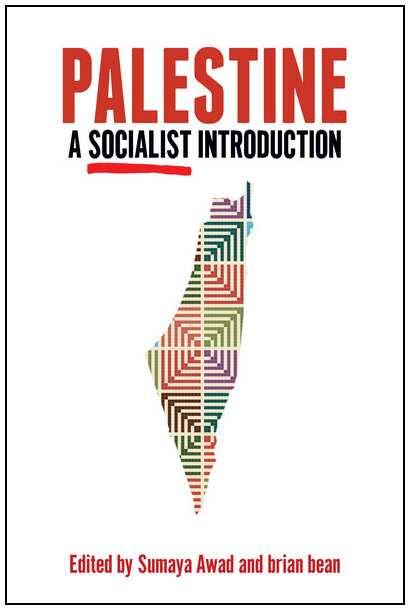
As students in high school in Ramallah and later at Birzeit University in the early 1980s, our lives included anti-occupation demonstrations, strikes, recurrent interruptions of classes and campus closures, rock-throwing, barricade construction, tire-burning, and army attacks in which students were shot, beaten, arrested from the street or at home in the middle of the night, imprisoned, and tortured. We also engaged in collective chanting and singing, voluntary work, and smoke-filled hours of political debate. Even students who were not politically engaged experienced most of this directly, because “the Israeli occupation knocks on (or down) every door,” as we would say.
Before the First Intifada in 1987, there were many intifadas that lasted for weeks and months, and the Israelis had yet to bomb us from the sky. Political debates and voluntary, community work (to help till fields at risk of Israeli confiscation, for example) seemed like opposing activities, I figured at the time, and I chose to work in groups mainly engaged in the latter. Yet I came to understand that all these activities, from the presumably static to the hands-on, constituted vital operational modes in the face of a ruthless occupation.
Reading this collection of essays brings new life to a simple truth: the most indomitable forms of resistance, and therefore Palestinian resistance, are symbolic. Raising the Palestinian flag, inhabiting diverse public spaces to claim them, insisting that we are Palestinian, one people — whether in exile, living under military occupation (the West Bank), on imprisoned land (Gaza), or within the state of Israel — and bonding ourselves to liberation and social justice movements around the world are all fateful acts. Palestinian poet Rachid Hussein (1936-1977), as Edward Said wrote in wonder and admiration, lived by the certainty that simply being Palestinian, claiming one’s identity, is resistance to Zionism.
The essays in Palestine: A Socialist Introduction tell the story of Palestinian national tenacity through the rifts of historical experience, geography, and generations, despite Israeli politics of segregation and re-naming. Israel’s plan has always been to divide and reduce Palestinian presence in Palestine, and to block Palestinians in exile from returning to, and often from even visiting, their land and homes. Palestinian citizens of Israel are called “Arabs” or even “Muslims” (meaning they could just as well go live in Jordan or any Arab country), instead of being called Palestinians. After the 1993 Oslo accords, Palestinians exiled in Jordan were encouraged to refer to themselves as Jordanians as opposed to Palestinians or Palestinian Jordanians — dispossessed by name and experience, even once forcibly displaced by Israel. And Palestinians in the West Bank are crowded into parched reservations on their historic land, policed by a Palestinian Authority that fully collaborates in upholding the Israeli occupation, and choked by expansionist settlements with swimming pools and sleek roads for exclusive use by Jewish Israelis. Palestinian families, friends, and histories from Gaza to the West Bank and throughout all of Palestine are fragmented and corralled into ever smaller, arid scraps of land, and of course Gaza is quite literally an Israeli prison of mainly underaged inmates.
In the face of this grim reality, the essays in Palestine: A Socialist Introduction, written by informed activists, narrate Palestinian history and contemporary struggles from the vantage point of resistance. The writers support mass popular uprisings, grassroots organizing, and solidarity with liberation movements the world over. The editors aim to simultaneously establish socialist societies in Palestine, the region, and the world, building bridges to freedom and social justice struggles internationally. This project, in concept and rhetoric as described in the introduction, seems almost unchanged from the 1970s. An important difference is that the editors reject the classic “stages” of socialist liberation, starting with the nation-state, and instead insist on the simultaneity of liberation and social justice struggles regionally and globally. Vast program.
And yet in our pandemic world, the idea that to free Palestine, international liberation movements collaborate seems not outdated but current. We return over and again to the underlying need for grassroots, integral democratic and social change. Few would argue with ABC producer Nasser Atta’s observation: in his 35 years of covering the region, astounding mass uprisings in Palestine and throughout the Middle East and Maghreb, lacking structure and leadership, are repressed every time. In a recent TMR essay, “Revolution Viewed From the Crow’s Nest of History,” Melissa Chemam reminds us that revolution, with its many setbacks, normally takes up a long stretch of history. We accept this historical reality, she rightly points out, in the case of the French Revolution, say, but overlook it when considering the Middle East and Maghreb.
“It’s like the people of Israel and Palestine are stuck in a time travel booth always leading to the same place, fooled by the idea that they are moving and this time they might actually get somewhere else.” — Ivana Perić
In the case of the Middle East and the Maghreb, the stakes are so high that the systematic, multilateral repression of any and all movements for regional democratic change is arguably unprecedented in modern world history. For decades now, the USA, Israel, and regional repressive regimes move in tandem to repress all uprisings. To ensure the multinational exploitation of natural resources and markets, populations are robbed, held in poverty, with access (if at all!) to mostly poor educational systems. And Israel is the regional power that helps keep populations subjugated. In the chapter “How Israel Became a Watchdog State,” Shireen Akram-Boshar relates the history of how it is in fact American interests (and not primarily the “Zionist Lobby”) that necessitates the support of the Israeli military with billions of US dollars yearly. She describes how Israel has now developed its own independent military technology, expertise, and police-state training that it successfully hawks the world over.
In the current uprising in all of historic Palestine, from Jaffa and Umm al-Fahm to Nablus and Gaza, there still is no unifying leadership. Rightful leaders with competence, learning, and integrity have been assassinated by the Israelis or imprisoned. Given the remaining choices, having no leadership seems to be an advantage. Yet the argument of the book holds that leadership is not the problem so much as the need to build grassroots, global alliances, to fight against neo-colonial domination in the region, and bring forth egalitarian societies. And since the pandemic, there is a new urgency to understand the interdependence of economic practice and social justice. Growing numbers of people and experts in every domain are connecting rapacious consumerism, territorial domination and ransacking, and damage to nature and communities (human, animal, and plant) to not only failed economic systems but the repression of social justice. This critique is becoming mainstream. And this shifting of the tide (at least partly) explains the current, unprecedented support (and media coverage) of Palestinian aspiration to freedom.
Palestine: A Socialist Introduction has clear advantages over academic and historical studies. Reading this accessible and lively 200 pages gives the reader a thorough idea of the history and current situation of the Palestinians. So much of the evidence, embedded in libraries of source material and scholarship, is here selected and brought together to make for a coherent read. Sumaya Awad and Annie Levin’s chapter “Roots of the Nakba” marshals forgotten public declarations, including citations from the private letters of Israel’s founding fathers and militiamen, drawn from Israeli and British archives. The chapters “How Israel Became a Watchdog State,” “The National Liberation Struggle,” “The Israeli Working Class,” and “The Price of Peace on Their Terms,” offer pointed analyses and good insights. The idea that peace was never an Israeli project, and that the Palestinian had “zero leverage” at Oslo, for example, is supported by tying together, in a single essay, the maneuvers and realities in the region, Israel/Palestine, the USA and Europe.
Some of the essays needed further editing or revision before publication. The evidence put forth in the introduction, for example, is quite compelling without the ferocious adjectives (capitalism’s “vampiric system,” the “tentacles of neoliberalism”) or the recurring “blooming” and “flowering” metaphors. This language can be conceptually reductive. Socialism in most chapters is defined broadly, in terms of societies and economies based on social justice. This is a good thing, in my view, as fusing the Palestinian cause to a wider regional and socialist program, narrowly defined, would ironically be comparable to what the Islamist movements offer, where Palestinian aspirations are a mere part of regional Islamist projects. The PLO’s one undeniable victory was to inscribe Palestinian identity and society onto the map of the world. Insisting on Palestine and Palestinian identity is vital to survival and resistance in the context of ongoing Israeli occupation and expansionism. Any movement or ideology that (perhaps inadvertently) merges — and risks to submerge — the Palestinians into larger entities would, if successful, be a disastrous set-back.
The chapter “The National Liberation Struggle” by Mustafa Omar should have been more thoroughly updated, and the disclaimer introductory passage stating that it was written in 2002 before PLO leader Yasser Arafat was assassinated is not enough. It is a valuable and interesting chapter, but at times not in sync with the timeframe of the rest of the book. Chapters that take alternative forms, like the informative (and exhilarating) interview with Omar Barghouti, founder of Boycott, Divestment, and Sanctions (BDS) fit very well. Other penultimate chapters “Palestine in Tahrir” by Toufic Haddad, “Nada Elia’s “Gender and Liberation in Palestine,” and “Black-Palestinian Solidarity” by Khury Petersen-Smith, read as essential to the main story, buttressing the book’s insistence on the unity of struggles.
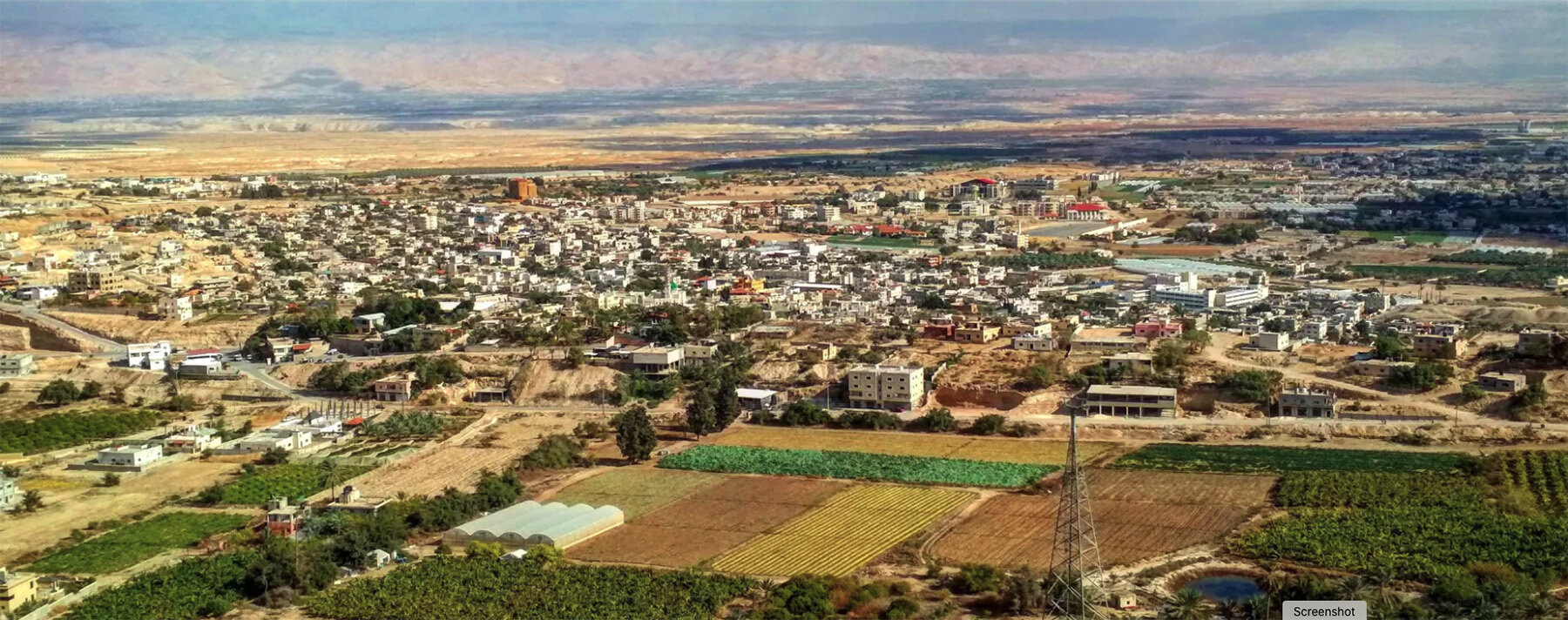
The most surprising chapter in the volume is Khury Petersen-Smith’s. Full of startling, often entertaining, quotes from leaders and thinkers as well as his own wry insights, Petersen-Smith traces Black-Palestinian revolutionary encounters and collaborations from the 1970s to the present day. It all seems incredible, the details fascinating, and yet this history is real. It shows how such internationalist action and alliances are not only remarkable and powerful but feasible.
What underlies all the chapters of this book is the idea that our fates are intertwined, our liberation movements and dreams, economic, political, and social at once, are interconnected. The pandemic has demonstrated without any doubt how our societies and nature are interdependent, how privilege is volatile and in unexpected conditions even illusory. The book proposes working collaboratively for a socialist future. In all cases, increasing numbers of people realize that we must work out sound forms of egalitarian and sustainable socio-economic systems.
Palestine: A Socialist introduction guides us in making critical sense of the Palestinian story — dismissively labeled in media as a “conflict” that is “too complicated.” The essays are well-argued and substantiated, and discuss interesting material and events. The conclusion offers hard-hitting numbers and parallels. In fact, all the chapters are full of useful texts, facts, statistics, comparisons and arguments — hot off the press — for activists.
Readers who have lived through much of the Palestinian experience and read a lot about it will find the collection of great interest. For new readers learning about Palestine, this volume offers the basic story, key sources, and a critical guide with which to start out on the journey.



